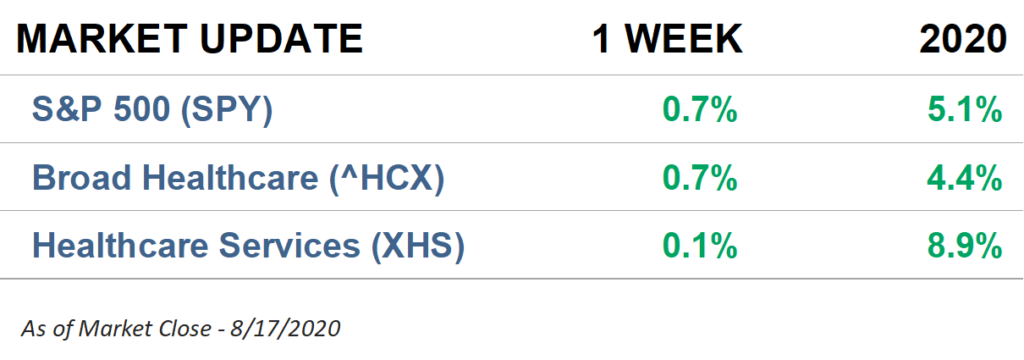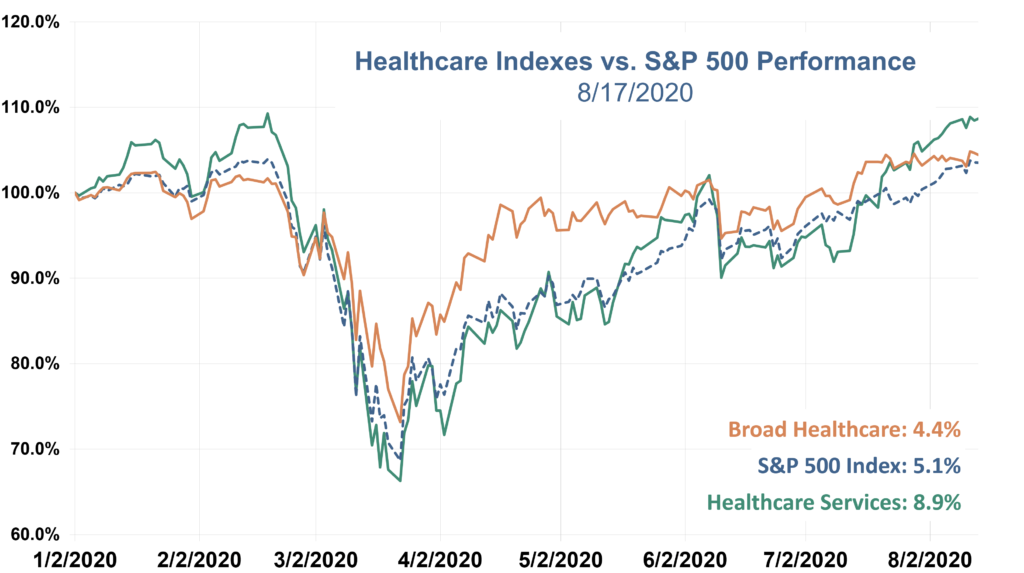

healthy muse healthcare news.
The Biden-Harris Healthcare platform.
Now that we all know Joe Biden’s pick for VP, Kamala Harris, here’s their expected healthcare platform:
- Medicare to 60: Move initial Medicare eligibility to 60 from 65 (something I wrote about here).
- ACA expansion: Expand ACA subsidies to more people. Premium costs would be capped at 8.5% of income.
- Public option: For the middle class – create a public health insurance plan that could compete against private commercial insurance. Middle class folks would get a tax credit to help with premium costs.
- Read more about a public option here. You already know that many players in the industry wouldn’t be fans of this proposal.
Other important initiatives for the Biden camp include combating high drug prices and ending surprise billing.
- What about Kamala’s ideas? Notably, Kamala championed the idea of Medicare for All and supported Bernie’s policies for a bit before creating her own version of M4A. Read more about Kamala’s ideas here.
Trump’s Healthcare plans.
On the other side, Trump’s healthcare rhetoric has ramped up, but no concrete plan has taken shape from the Republican side. HOWEVER, Trump’s recent executive orders give signals into what he’s paying attention to, including:
- Expanding **rural healthcare** access;
- Awarding a contract to Kodak to increase the generic drug supply in the U.S. (note that this is now under investigation because Kodak did sketch things)
- Allowing drug importation from nations like Canada (also on the Democratic agenda)
- Eliminating PBM rebates and providing EpiPens/insulin for free through the 340B program
- Implementing an international drug pricing index for Medicare to reimburse drugs. (also on the Democratic agenda)
Healthcare politics are fun.
The top 150 Digital Health startups in 2020.
This week, CB Insights released an interesting digital health report, naming the top 150 digital health startups. Things to know:
- 41% of these companies provide telehealth
- These 150 companies have raised over $20 billion in funding, collectively
Young people and mental health care.
The CDC released a damning report concerning mental health during the pandemic, finding that about a quarter of young adults (18-24) have considered committing suicide during COVID-19. Pretty eye-opening for sure.
Drugs are expensive. But which are most expensive?
Speaking of politics and drugs, GoodRx released its list of the 20 most expensive drugs in the U.S. Note that most of these drugs are ‘orphans.’ or HIGHLY specialized drugs used for very rare diseases.
- If you want to take a more holistic view of the drug market, take a look at this report that lists the largest drugs by sales revenue.
Coronavirus updates.
Russia’s rushed vaccine.
This week, Putin **dubiously claimed** that Russia had fully developed the first-ever coronavirus vaccine, even claiming that his daughter had taken the Russian-made product.
- Public leaders including Fauci were **pretty skeptical about Putin’s claim.** Since the vaccine couldn’t have gone through more than two months of human trials, health officials had serious doubts that the vaccine is safe.
- Russia’s ‘rush’ to market (if you will) comes in pretty stark contrast to the U.S. approach. The FDA has vowed to make its vaccine decisions based on ‘data, not politics,’ which is comforting.
Yale’s new SalivaDirect COVID test could be a game changer.
This week, Yale unveiled a new rapid test called SalivaDirect, which (you guessed it!) tests patients for COVID through saliva. To ensure accuracy, the saliva test’s results were compared to other more ‘invasive’ tests given to NBA players and was found to be equally as effective, which is great news.
- Why is this a gamechanger? Because this saliva-based test is non-invasive, speedy, as reliable, and about a tenth of the cost (~$10). It could go a long way to fix the U.S. testing shortage.
- According to health officials, individuals need to know test results within three days to help prevent worsening spread.
Other ‘Rona things to know.
- Fauci thinks we’ll return to societal “normalcy” around the end of 2021.
- Read this informative article from CNBC that details out all of the U.S. government’s investments and deals in various vaccines and treatments as part of its ‘Operation Warp Speed.’ So far, the U.S. spent around $11 billion on such deals.
- Nobody will pay out-of-pocket for a COVID-19 vaccine, according to HHS.
- The CDC is prepping the U.S. for a potential double-whammy fall – **a Flu/Coronavirus sandwich.** Walgreens and CVS are already leading the proactive charge against this year’s flu season.
- Ever wonder what it’s like to be part of a coronavirus vaccine trial? Read on, Muser.
- HHS is sending $1.4B from its $175B pool to children’s hospitals.
- The FDA just created its first-ever list of medical equipment shortages. Take a look at the list here.
Quick Hits
Biz Hits
- Sentara Healthcare and Cone Health announced their intent to merge into a 17-hospital, $11.5 billion health system in the Virginia, North Carolina, and Ohio area. It’s a big one, folks. Of course, the deal is subject to regulatory scrutiny. And remember: hospital megamergers are starting to get a LOT more of that.
- Keep an eye out for the MDLive IPO, expected in 2021. The telehealth startup moved its IPO date up after seeing how well its peers TelaDoc and Livongo were doing.
- Take a look at the Commonwealth Fund’s latest report on how outpatient visits have trended over the entire course of the pandemic.
- Executives from digital healthcare assistant firms like Suki and Olive think that COVID-19 has accelerated the adoption of their tech.
Policy Hits
- The new HHS data reporting portal for COVID has been plagued with delays and QC issues. (WSJ – paywall)
- After expanding Medicaid in a recent vote, Oklahoma’s department of health withdrew its Medicaid block grant proposal from HHS.
- Payors won in court once again over the Trump admin over the ACA’s cost-sharing payments.
- The Defense Secretary might cut military healthcare benefits by $2.2 billion in the Pentagon’s next budget. Remember that there’s a pandemic going on.
Other Hits
- A recent UnitedHealthcare study found that primary care physicians in value-based payment models get better patient outcomes.
- Read this Health Affairs post about what it’ll take for telehealth to stick around long term.
Thought-Provoking Editorials
- Can Walmart change healthcare? (MedCityNews)
- The flawed design of Medicare Part D. (46Brooklyn)
Healthy Muse Top Picks
The Health Cost Institute’s latest report compares commercial reimbursement rates to Medicare reimbursement rates across outpatient, inpatient, and professional services. Their findings? Commercial rates vary widely across the country – from 98% of Medicare in ‘Bama to 188% in Wisconsin. There are plenty of other super interesting findings. I highly recommend giving the report a read!
Thanks for reading.
Save yourself some time by subscribing to our all-in-one newsletter. Subscribers get the first edition – every Monday night.
About the Healthy Muse.
The Healthy Muse was created to educate people on the healthcare system. It’s one weekly e-mail updating you on all the major election news, broader trends, big stories, and policy updates. Learn more about our vision here.
Get smarter and sign up below today.